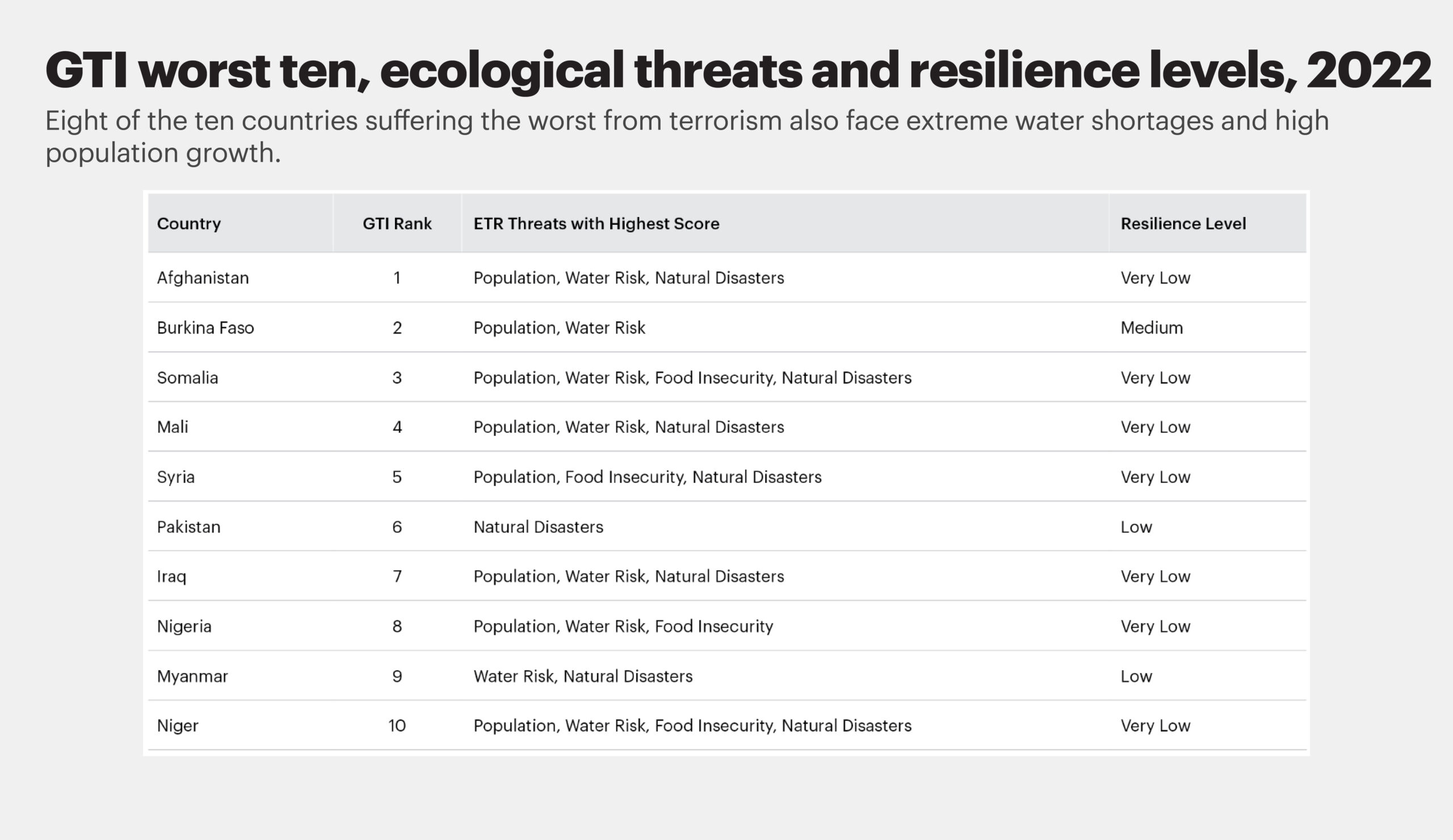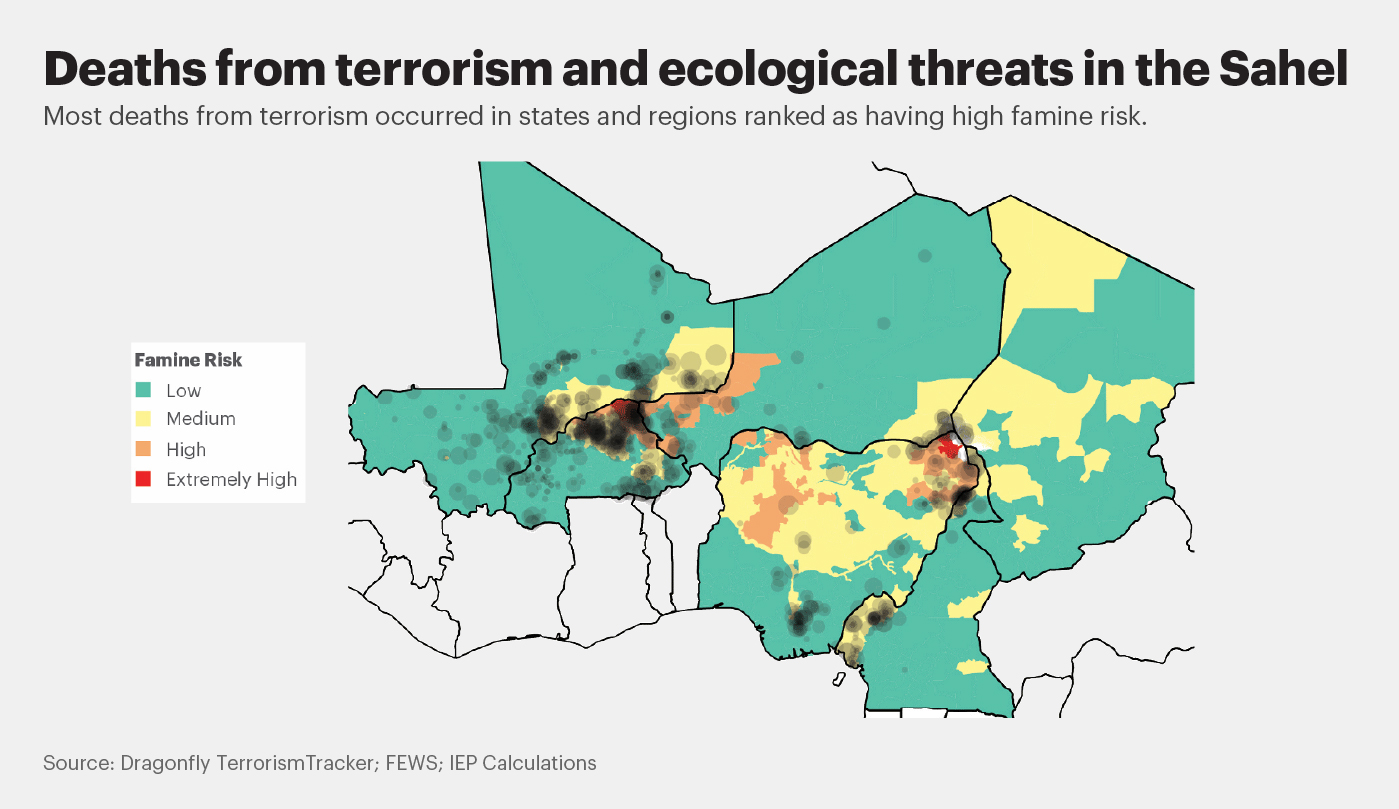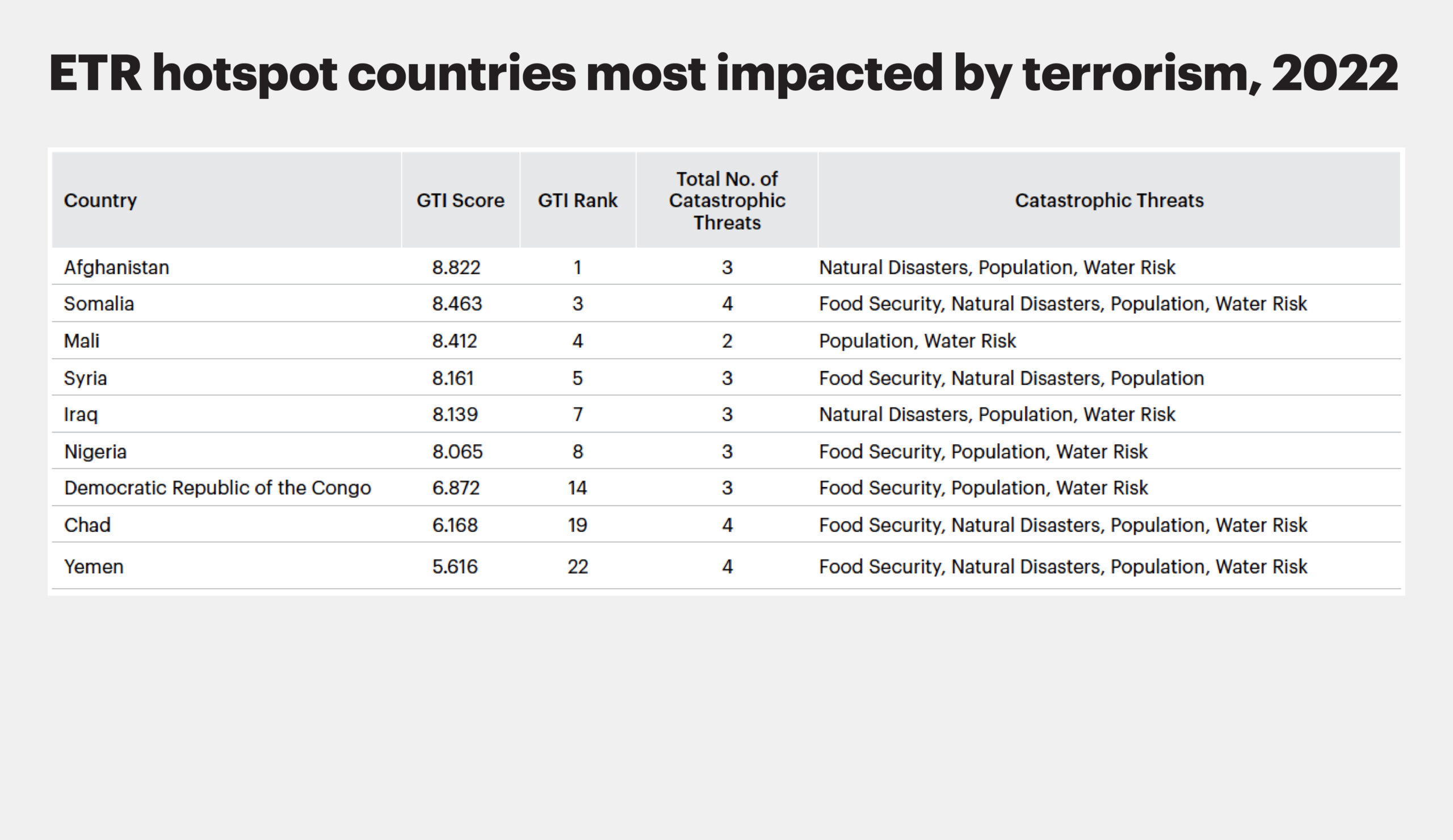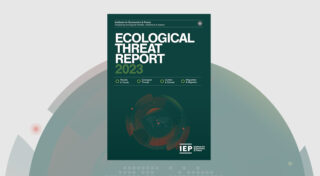This article delves into the connection between ecological degradation and increasing global terrorist activities. Analysing the findings from international think-tank, the Institute for Economics and Peace (IEP)’s 2023 Global Terrorism Index (GTI), we uncover the gravity of looming ecological threats and their implications on countries already grappling with terrorism.
Ecological threats, such as food insecurity, water scarcity and climate change, have become common terms for many, indicating the pressing nature of these issues on a global scale. The links between the growth in regional terrorism and ecological crisis are unmistakable. However, the ways in which terrorist groups use ecological threats to recruit new members is less clear. Despite being unmistakable and unclear, how these ecological factors contribute to the surge in terrorist activities, especially in regions with existing vulnerabilities is still an underexplored aspect.
The intersections between climate change and terrorism are paramount to understanding global challenges. Over the past eight years, which are analysed to be the warmest on record, the world has seen rising heatwaves, droughts and floods that exacerbate resource scarcity, disrupt agriculture and trigger rural-to-urban migration. These climate-induced challenges, when manifested in regions already under the menace of terrorism, multiply the risks. Despite the absence of a direct correlation, evidence from German Watch’s Long-Term Climate Risk Index reveals countries grappling with both terrorism and climatic extremes.
On the 2023 Global Terrorism Index (GTI) and the 2022 Ecological Threat Report (ETR) by IEP, a striking interplay is revealed between ecological degradation and conflict. Alarmingly, six of the top ten countries most impacted by terrorism also find themselves amongst the 25 with the gravest ecological threats and least resilience. This draws attention to the symbiotic relationship between environmental adversities and increasing conflict.
Of the staggering 830 million people facing global food insecurity, a significant 58% reside in the 20 countries most affected by terrorism. Moreover, countries like Iraq, Afghanistan, Mali and Chad are predicted to experience amplified water stress by 2040. In fact, water-focused terrorist incidents have surged threefold between 2000 and 2022.

The direct impact of climate change on terrorism is multifaceted. One avenue is how climatic extremes aggravate drivers leading to radicalisation. Resource scarcity, coupled with the fallout from extreme weather events, has enabled terrorist actors to monopolise relief efforts, propagandise, recruit and raise funds. Often, these groups exploit the void left by ill-equipped governments in the aftermath of natural calamities. Such was observed in Pakistan post the 2010 floods, groups like Lashkar-e Taiba, operating under fronts, offered significant humanitarian relief, overshadowing the government’s efforts. And in Somalia, al-Shabaab seized control over famine relief efforts. Furthermore, in water-deficient regions like northern Iraq, the Islamic State (ISIS)’s control over water and energy infrastructure transformed the agrarian landscape, enticing farmers to join their ranks. Such actions not only help them in recruitment but also in gaining legitimacy among the local populace.
With climate change intensifying, it’s conceivable that such events will offer more opportunities for terror factions to exploit. As we look to the future, while current research predominantly denotes an indirect influence of climate change on terror, it is vital to note evolving patterns. Governments have sometimes misused counter-terrorism legislation against climate change protestors. On the other end, far-right movements, particularly “eco-fascists”, perceive climate-induced migrations as an opportunity to promote xenophobic narratives.
This concerning upward trend in terrorism is particularly pronounced in the Sahel region. Eight of its ten nations rank the lowest in terms of food and water availability according to the 2022 ETR. Burkina Faso exemplifies this shift with a 50% spike in terrorism-caused deaths, amounting to 1,135.
Disturbingly, deaths from terrorism in the Sahel have risen by 7%, now surpassing the combined totals of South Asia and MENA (Middle East and North Africa). It represents an overwhelming 43% of global deaths due to terrorism. Reports also indicated an increase of deaths over 2,000% in the last 15 years in the Sahel. The compounding challenges in this region span from poor food security to swift population growth and rampant criminality. The primary drivers of this spike in terrorism are also linked to poor water utilisation, ethnic polarisation, and weak governance. To further aggravate the situation, the Sahel witnessed six coup attempts since 2021, with four being successful.

However, the Sahel isn’t alone in facing these challenges. According to the 2022 ETR, 27 “hotspot” countries grapple with catastrophic ecological threats and display low societal resilience. Predominantly located in sub-Saharan Africa, MENA, and South Asia, these countries are also majorly impacted by terrorism.
Countries with already strained resources and weak governance structures find themselves in a vicious cycle. The degradation of vital resources escalates violence, and in return, the ensuing conflict further depletes these resources. In such fragile environments, terrorist groups find fertile grounds to exploit and proliferate. The weaponisation of resource scarcity, such as the tactics used by ISIS and its affiliate groups in the Sahel, showcases how ecological threats can be turned into tools for radicalisation and recruitment. Natural disasters further strain these vulnerable systems. The aftermath can weaken a government’s control and amplify existing divisions, offering more opportunities for terrorist entities.

As we steer our attention to potential solutions, the unification of climate change countermeasures with counterterrorism and Preventing and Countering Violent Extremism (P/CVE) approaches seem promising. By considering the climatic influence on radicalisation, strategies can be better tailored. A notable paradigm shift is to “green” P/CVE programming. This involves training individuals in vocations resilient against climate impacts or even those that actively combat climate change. However, merging these domains requires caution, ensuring that human rights and fundamental freedoms remain uncompromised.
In addressing these dual threats, the essence of building resilience cannot be overstated. Resilient communities, empowered with knowledge and resources, not only withstand ecological threats but also counteract potential radicalisation tendencies. This multi-pronged approach is crucial, ensuring that as we combat ecological threats, we simultaneously promote stability and reduce the risk of violent extremism. By empowering local communities, investing in innovative resilience-building programs, and leveraging both public and private resources, societies can also foster sustainable growth.
It is evident that ecological degradation not only threatens our environment but also plays a vital role in destabilising regions, making them more susceptible to terrorist activities. The increasing overlaps between ecological threats and terrorism point to a need for a consolidated global approach, where environmental and security strategies are intertwined. The findings from IEP’s Global Terrorism Index (GTI) and Ecological Threat Report (ETR) underline the urgency to address these ecological threats, not just for the sake of the environment but for global peace and security.

Download the Ecological Threat Report 2023
Ecological Threat Report 2023